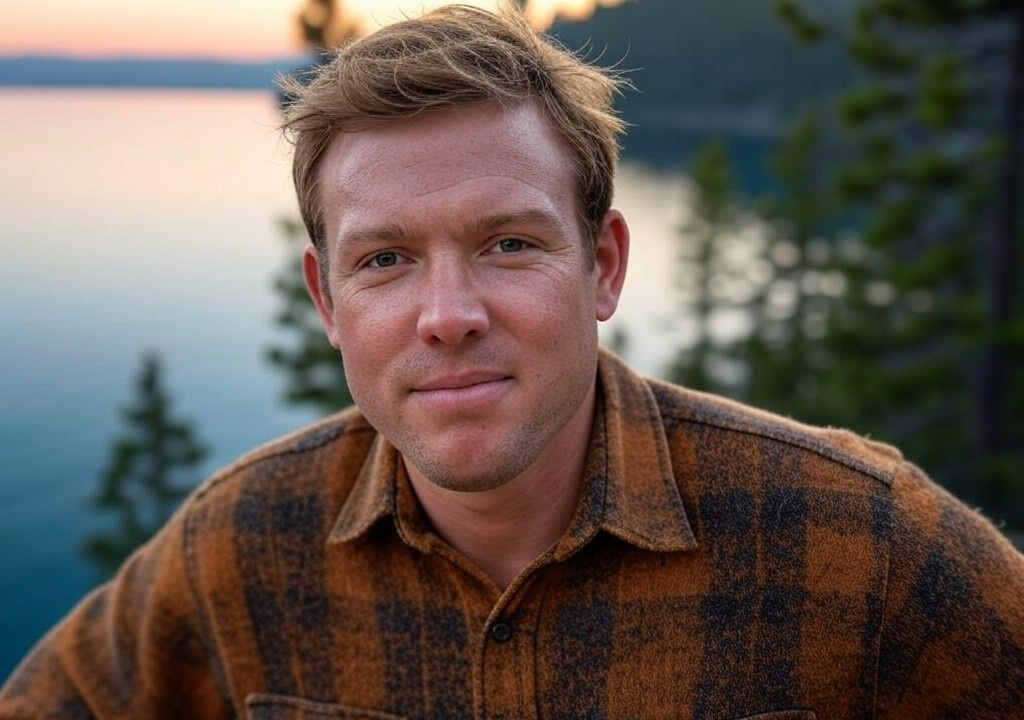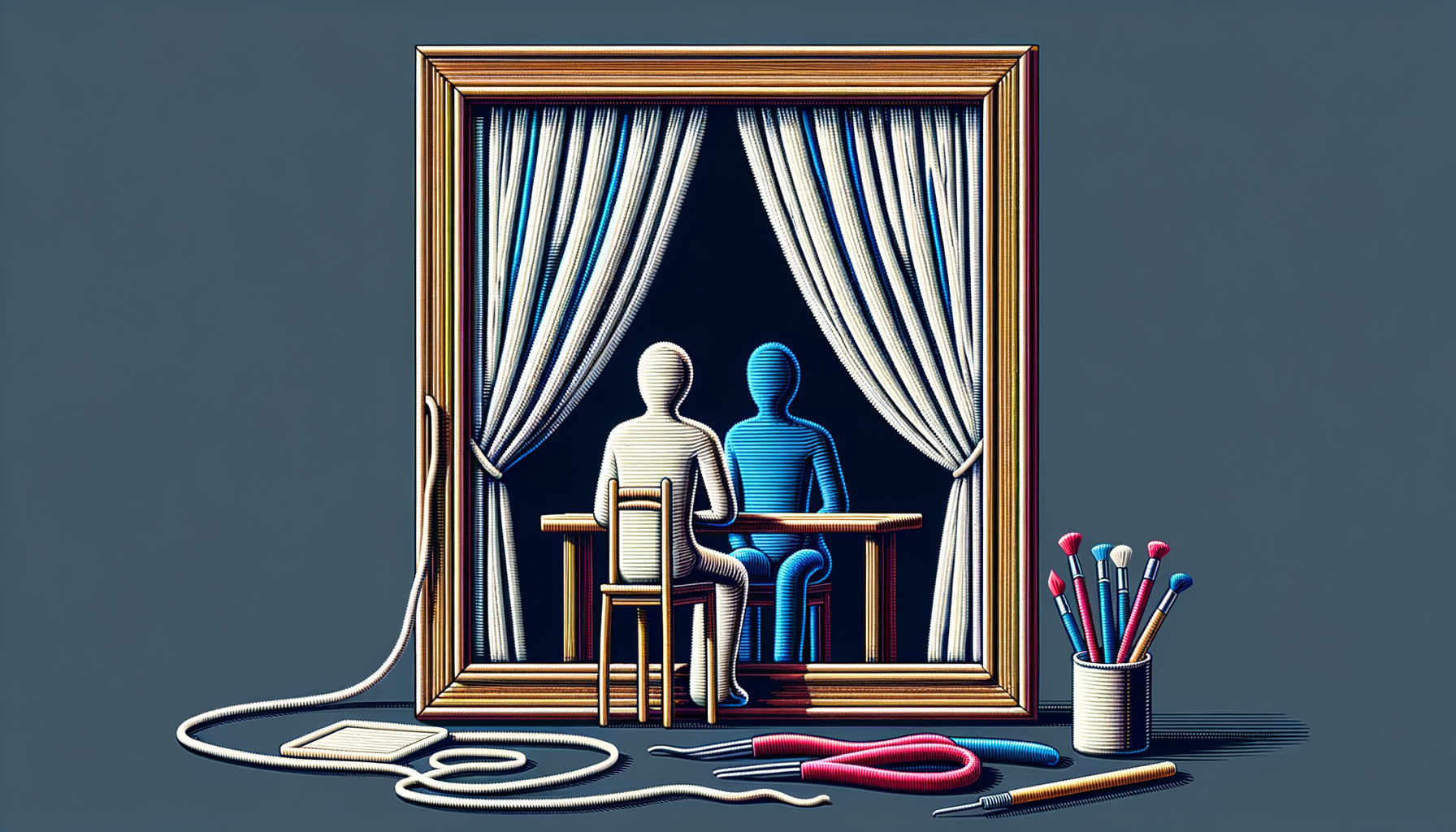I was 21, lost somewhere between frustration and self-doubt, when I met the person who changed everything.
It was late April in Davis, California, and my life felt like one giant pile of unfinished drafts. I was trudging through my Environmental Science program, knee-deep in soil samples and lab reports, and every so often questioning whether I had chosen the wrong path. My electives in creative writing—originally taken to “lighten my load”—were becoming the highlight of my week. I had a head full of ideas about nature, about life, but I didn’t think I had the chops to call myself a writer.
Enter Professor Halliday. She wasn’t the type of teacher you’d expect to shake your entire worldview. She wore the same threadbare cardigan to every class, had a coffee cup perpetually attached to her hand, and made absolutely no effort to mask her disdain for late assignments. But Halliday didn’t just read your writing—she read through you, finding the meaning you didn’t even know you were trying to create. And for me, that moment of clarity came when she scribbled just five words in the margins of my paper: “You’re not being fully honest.”
The Moment Someone Sees You
Here’s the thing about writing, or life, or really any kind of self-expression: It’s terrifying to show up as you are. Whether it’s revealing your real feelings to a partner, being vulnerable with a friend, or simply sharing that first messy draft of an idea, we’ve all got this primal urge to edit ourselves. To hide.
When Halliday handed me back that story—a rambling attempt to wax poetic about tree planting while ignoring the loneliness I felt being 200 miles from home—I knew exactly what she meant. I wasn’t “fully honest” because I didn’t want anyone, least of all myself, to see that side of me. But Halliday did. She saw potential in the truth I wasn’t ready to share, the kind that could transcend awkward metaphors about pine needles and root systems. Her feedback wasn’t surface-level—it was seismic. It planted a seed for something bigger.
Seeing Potential Is a Superpower
Sometimes all it takes is one person to see you with clarity, like wiping fog off a mirror. It can be a mentor, a friend, or even a stranger on the ski lift who casually drops a life-changing observation. (Trust me, that happens more than you’d think in Tahoe; there’s something about thin air and precarious heights.) What these people have in common is their ability to see past your façade, whether it’s bravado, perfectionism, or self-deprecating humor, to reveal the gold underneath.
Maybe it’s a boss who hands you that stretch project because they know you’re capable—even when you don’t. Or an old flame who, despite the rocky breakup, once marveled at your creative spark. These people aren’t clairvoyants; they don’t see your whole future. What they do see are pieces of you that deserve to grow, to be nurtured.
And when they call you out—or call you forward—it sticks.
Lessons in Being Seen (And Learning to See Others)
There’s something profoundly humbling about being seen in a way that changes your direction. But here’s the kicker: most of us are far better at spotting potential in others than we are in ourselves. Case in point: every time I’ve interrupted a friend mid self-doubt spiral to remind them of how incredible they are (you know, as one does), I’m speaking from some deep well of certainty. Yet when I look in the proverbial mirror? Fogged up, every time.
Halliday helped me see through my own fog—so here are a few lessons her insight taught me about recognizing and embracing potential, both in ourselves and others:
-
Stop editing your story too soon. Whether it’s an actual piece of writing or the story you’re telling yourself about your life (“I’m not good enough for this job,” “I’m just not the relationship type,” etc.), don’t prune the branches before they’ve had a chance to grow. Your messy draft deserves to exist.
-
Ask better questions. Halliday’s magic wasn’t telling me what to say—it was challenging me to dig deeper. When someone comes to you for advice, resist the urge to fix their dilemma and instead ask, What’s underneath that? You might just help them unearth something bigger.
-
Speak the unspoken. The right comment, at the right moment, can feel like a beam of sunlight breaking through the clouds. But if you think someone has incredible potential? Tell them. They might be waiting for permission to believe it.
-
Be patient with yourself. Seeing your own growth happens in slow motion—through quiet moments of reflection, chance encounters, and that inevitable voice in your head whispering, What if they’re right?
Let Your Potential Take Root
When I think back to that year with Halliday, I’m reminded of a Sierra Nevada landscape waking after winter. Quiet at first—snow melting, ground thawing—but bursting with life just beneath the surface. For me, her encouragement was like sunlight on bare soil, coaxing a single stubborn sprout into something wild and green: belief in myself as a writer.
That seed eventually grew roots—and now, years later, I find myself here, writing about relationships, of all things. And isn’t this, in some ways, another act of stewardship? Tending to the terrain of human connection, shining little spotlights on the truths we’d rather leave buried? If Halliday could see me now, she’d probably laugh, her cardigan sleeve dabbed with coffee stains, before writing “Keep going” in bright red across my margins.
So here’s my version of her encouragement, dear reader: If you’re lucky enough to find someone who sees you, don’t resist their vision. And in turn, make it your quiet mission to become that person for someone else. It might not come with a big spotlight or an “aha” moment—maybe it’s just five words in the margins of a metaphor-heavy essay.
But trust me, words like that can grow forests.




















